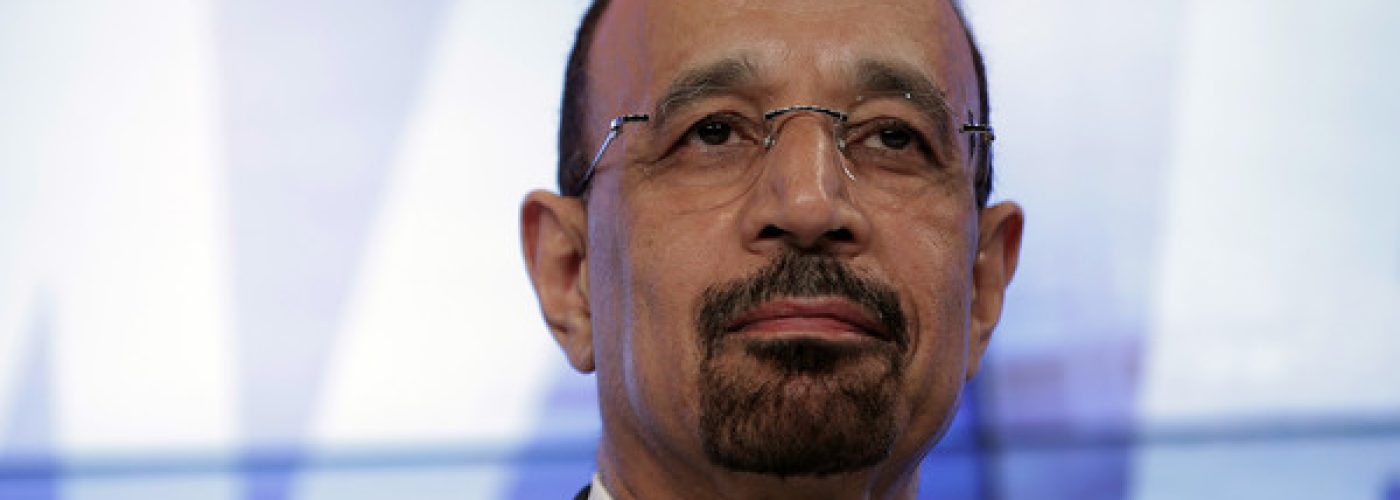
Khalid Al Falih
Khalid Al Falih, Saudi Arabia’s oil minister and chairman of the country’s state energy giant, said the government will make sovereign decisions on production and capacity even after a public offering of Saudi Aramco.
Speaking to reporters on the sidelines of his first Opec meeting in Vienna, Mr Al Falih said any minority investor would be buying into the relationship between the Saudi government and the world’s largest oil producer.
“Part of this is that the government makes decisions on production and capacity,” said Mr Al Falih, adding that it would be up to the company to demonstrate to investors the benefits of the arrangement.
“It’s a win-win policy and strategy that the kingdom has adopted [and] Aramco has benefited from it. Investors will have to accept this reality,” he said.
The IPO of fewer than 5 per cent of Saudi Aramco, the country’s largest cash cow and one of its biggest employers, comes as part of a broader overhaul of the kingdom’s economy led by the powerful deputy crown prince Mohammed bin Salman. He has said the IPO, which is at the core of a strategy to diversify away from oil, could value the entity at $2tn.
The announcement earlier this year has whet the appetite of international bankers, investors, lawyers and consultants, but placed the global energy major under the microscope.
Mr Al Falih said the offering by the parent company, set for 2018, would need to surmount many obstacles because of how entwined the company was with the government.
The taxation and accounting of Aramco would require “extensive rewiring”, Mr Falih said. Projects undertaken on behalf of the government rather than for the commercial entity would have to be “delineated”.
Saudi Aramco began as an oil explorer and producer that not only branched out into refining and petrochemicals but has also been called on by the state to build schools, stadiums and other infrastructure.
Prince Mohammed said last month an IPO would give Saudi Aramco more independence from government oil policy. An elected board, he said, would be able to make its own decisions.
Industry analysts have questioned how an entity that is deeply involved in the activities of the state could also ensure that it was acting in the best interests of minority shareholders at the same time.
Mr Falih said the public offering had multiple objectives: to showcase Saudi Aramco and make it a participant in global capital markets, and to enable it to expand internationally.
“Another aspect is to remove this notion that Saudi Aramco is not transparent,” he added, citing the company’s international governance and accounting standards and compliance practices.
The structure of an IPO or where it would be listed are among the key issues that remain undecided. Proceeds and dividends from the offering, Mr Falih said, would be invested by the country’s sovereign wealth fund into non-oil assets.
Saudi Arabia, the world’s largest exporter of oil, relies on its hydrocarbon riches for more than 90 per cent of its government revenues.
Copyright The Financial Times Limited 2016. You may share using our article tools.
Please don’t cut articles from FT.com and redistribute by email or post to the web.





